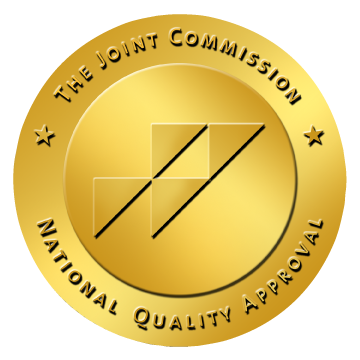Mental illness refers to a range of mental health conditions that affect a person's thinking, mood, behavior, and overall functioning. These conditions can significantly affect a person's ability to cope with daily activities, work, and relationships.
Disorders can range from mild to severe and can include depression, anxiety, bipolar disorder, schizophrenia, and many others. Experts believe that mental illness usually results from a combination of genetic, biological, environmental, and psychological factors.
Mental illnesses can be challenging to diagnose and may include co-occurring disorders (dual diagnosis). It's essential that individuals experiencing or exhibiting symptoms of mental illness work with a mental health professional for an accurate diagnosis and the most appropriate treatment plan.
It's not unusual for someone exhibiting signs of mental illness to deny they have a mental health issue. The more you know about mental illness, the easier it is to understand why a person may deny they have a mental disorder.
What Are Some Reasons a Person May Deny They Have a Mental Illness?
Mental illness affects millions globally and is common in the United States. The National Institute on Mental Health (NIMH) estimated that, in 2021, more than one in five U.S. adults — or almost 60 million people — were living with a mental illness.
Mental illness is a chronic condition that cannot be cured but is highly treatable. Treatment can minimize symptoms and enable the person to function well. So why do so many people fail to admit they are struggling and refuse to seek the help they need? Reasons often include one or more of the following:
- Stigma - stigma (unfair beliefs or a mark of disgrace) is still associated with mental illness. When uneducated people shame or disapprove of those with a mental illness or label them as "crazy," a person struggling with emotional distress may be reluctant to seek help, even denying they have a problem.
- Fear of discrimination - individuals may be concerned about discrimination in the workplace, social circles, or within their families if they disclose their mental illness. This fear can lead to avoidance or denial.
- Not understanding mental illness - some individuals may not recognize the signs and symptoms of a mental illness and may not realize they are experiencing one. They may attribute their symptoms to stress, fatigue, or other life events rather than considering the possibility of a mental health issue.
- Cultural factors or personal beliefs - some cultures or families view mental illness and the desire to seek help as a sign of weakness or failure. Members of these groups feel they should “tough it out” or overcome mental challenges on their own.
- Desire to uphold self-image - some individuals deny their mental illness to protect their self-image, both to themselves and to others. Admitting a mental illness could lead to a perceived loss of status, control, or competence.
- Fear of treatment - concern about the potential side effects or long-term consequences of medications or therapy may prompt some to deny their illness rather than seek help.
- Anosognosia - anosognosia is a common symptom of mental illnesses like schizophrenia and Alzheimer’s disease. Anosognosia means the person is unaware of their mental health condition or can't perceive their illness accurately because they are not thinking clearly enough to choose denial.
How Can You Help a Loved One in Denial?
Creating a supportive environment for individuals experiencing mental health issues and working to raise awareness and reduce stigma around mental illness is essential. Encouraging open conversations and promoting access to mental health care can help people feel more comfortable seeking help and addressing their mental health needs.
Five ways you can help:
- Educate yourself. Learn about the specific mental health condition your loved one is experiencing so you better understand symptoms, treatment options, and how to support them.
- Listen without judgment. Let your loved one share feelings and experiences without interrupting or trying to solve their problems.
- Work together to dispel stigma. The National Alliance on Mental Health offers free support groups to those living with mental health conditions and their friends and loved ones. They also sponsor public awareness events and activities, including Mental Health Month and NAMIWalks, to fight stigma and encourage understanding.
- Encourage your loved one to seek professional help from a mental health professional. Offer to help them find resources, schedule appointments, or accompany them to their appointments.
- Locate a local or online support group for those with your loved one’s mental health condition.
Contact New England Medical Group to learn how we can help your loved one get the mental health treatment they need and deserve.
